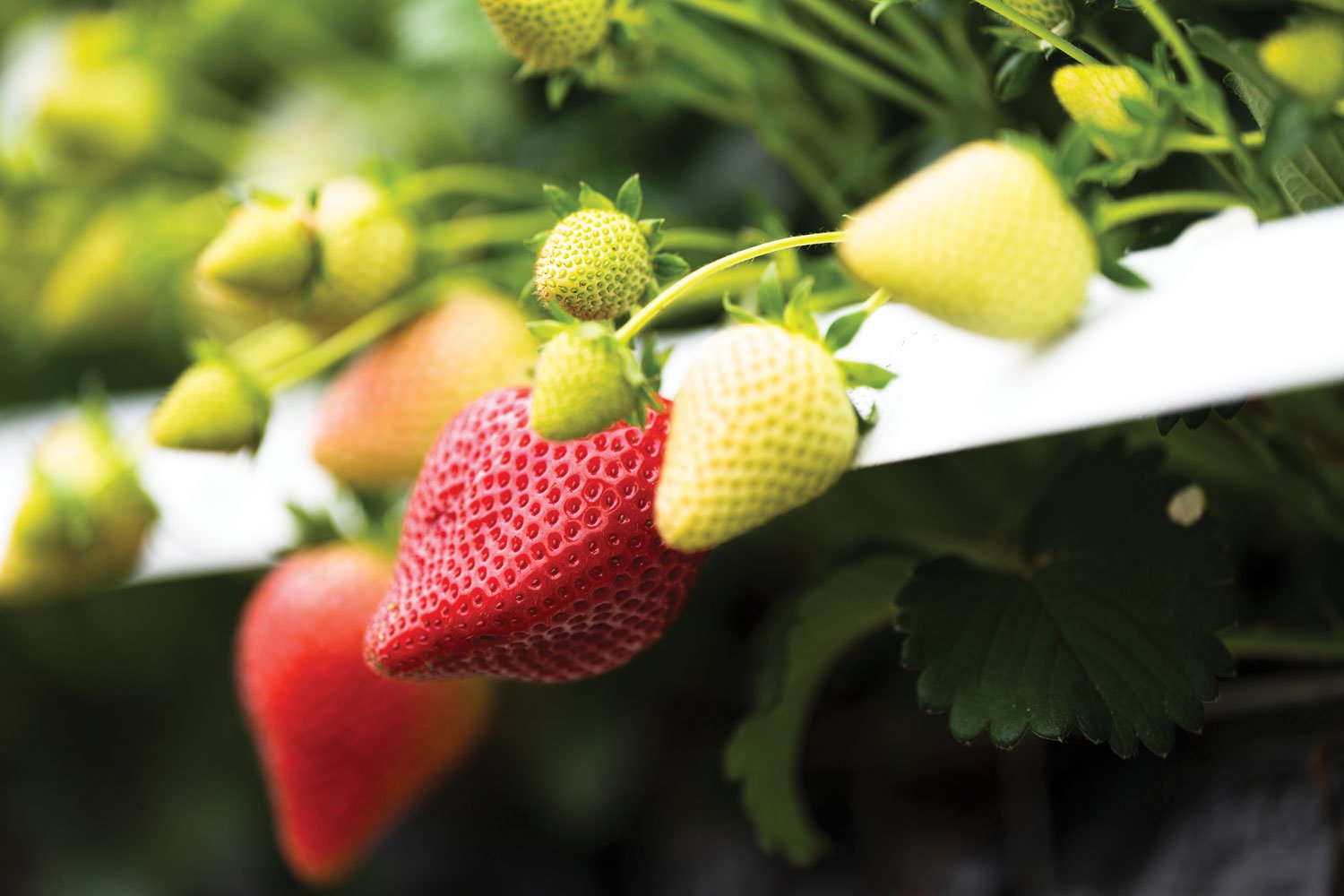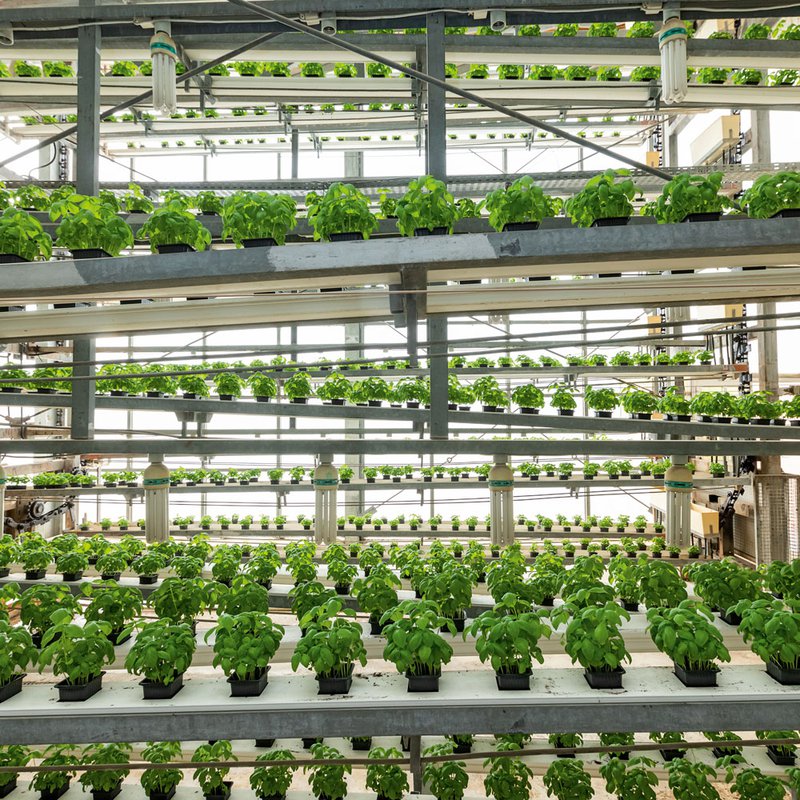Hall Hunter is one of the UK’s leading strawberry producers. Where did your story begin?
It began in 1966, with my parents who, living on Heathlands farm in Wokingham (where they still reside today) were growing fruit and vegetables to sell at the London markets. They pioneered the pick-your-own concept – inviting customers onto the farm to pick their own produce – and this evolved into them establishing a farm shop and a garden centre. In the early 90s they started supplying BerryWorld with strawberries – which were sold into various local supermarkets. I took over in 1997 and went from growing 300 tonnes of strawberries to 14,000 tonnes of mixed berries including raspberries, blueberries and blackberries.
How many farms do you have today?
In addition to Heathlands, which is also home to our pack house, we have Tuesley farm in Surrey (probably the largest blueberry farm in the UK) and Sheeplands in Berkshire, which borders the River Loddon. We use this river’s water to heat 15 hectares of strawberries on the farm. Sheeplands is also where we trial new varieties from 15 different breeding programmes.
What makes the regions in which your farms are situated ideal for growing strawberries?
Overall, the UK has quite a cool, maritime climate and this has several benefits. The fruit ripens more slowly than that in southern hemisphere countries – this has a positive effect on natural sugar levels, we’re able to maintain good fruit quality and yield in the hotter summer months of June, July and August, and we’re able to extend the growing season until November.
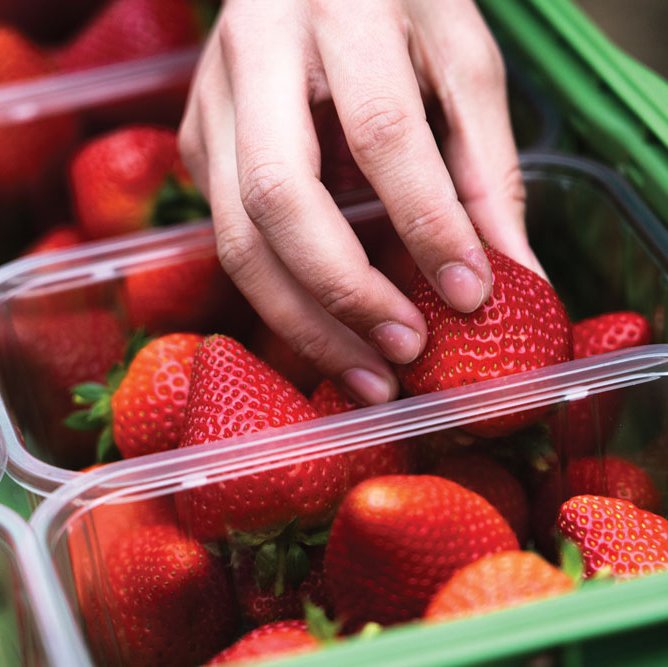
Hall Hunter produces 14,000 tonnes of mixed berries every year
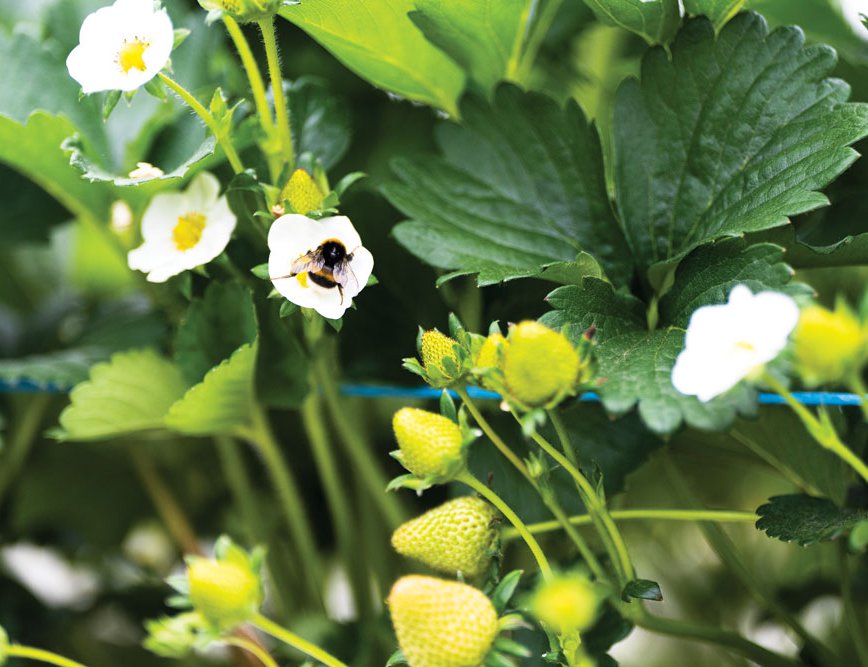
Bumblebees and honey bees are introduced in Hall Hunter's greenhouses to pollinate strawberry flowers
Tell us more about how your heated river water system works.
We’ve invested in an environmental heat project that enables us to generate hot water and heat our tunnels. Essentially, the whole system works like a radiator – the hot water runs through pipes which sit directly under the strawberry plants. Because of this process, we’re able to pick fruit three to four weeks earlier in the season. And we’re able to achieve this in a sustainable manner. Using river water and a heat-pump system like ours has a much lower carbon footprint than using a gas boiler.
Is this system unique to Hall Hunter?
We pioneered this project in collaboration with Ebtech Energy Systems. It’s been an up-and-down journey, but it works and that is great!
What other sustainable practices do you employ on your farms?
We have a biomass boiler to generate heat for our residential accommodation and we use photovoltaics to generate electricity for our barns. In terms of nature around our crops, we have wildflowers and indigenous hedgerows – these not only provide a great habitat for beneficial insects, particularly pollinators, but they (the hedgerows) also act as essential windbreaks for our crops. We’re aware that as we go froward, sustainability has to be top of mind.
Is this system unique to Hall Hunter?
We pioneered this project in collaboration with Ebtech Energy Systems. It’s been an up-and-down journey, but it works and that is great!
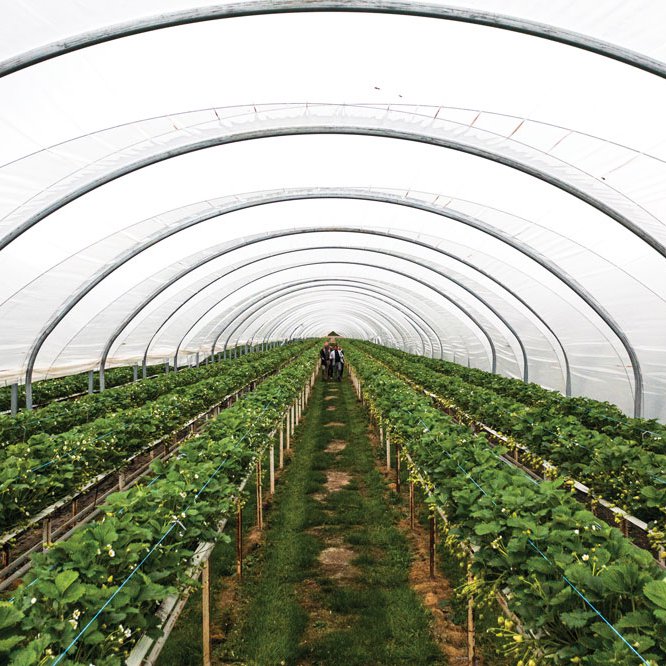
Inside one of Hall Hunter's strawberry greenhouses
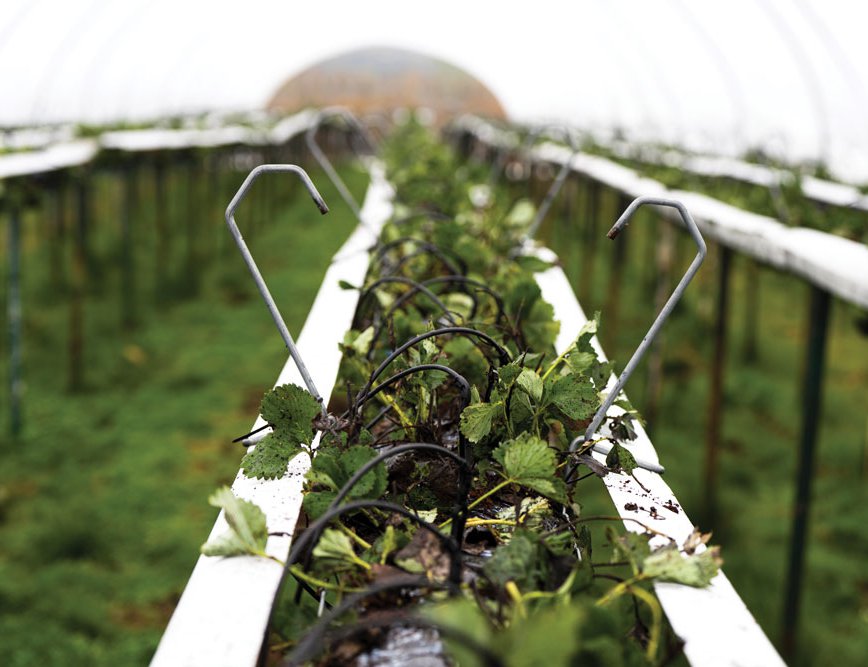
Tubes deliver heated water to the plants
What else keeps you motivated in this business?
It’s been 25 years and I’m still passionate about berry farming. I feel at peace when I’m walking among the crops. There’s plenty of time to think – and I get to be involved in the whole process. It’s pretty easy to jump out of bed most days!
Do you think your children will carry on the family legacy?
They’re young, but they seem to be interested in the business which is lovely. My son loves tractors, and both my daughters think they’ll be in charge. At least they’ve realised it’s not just about eating strawberries!
